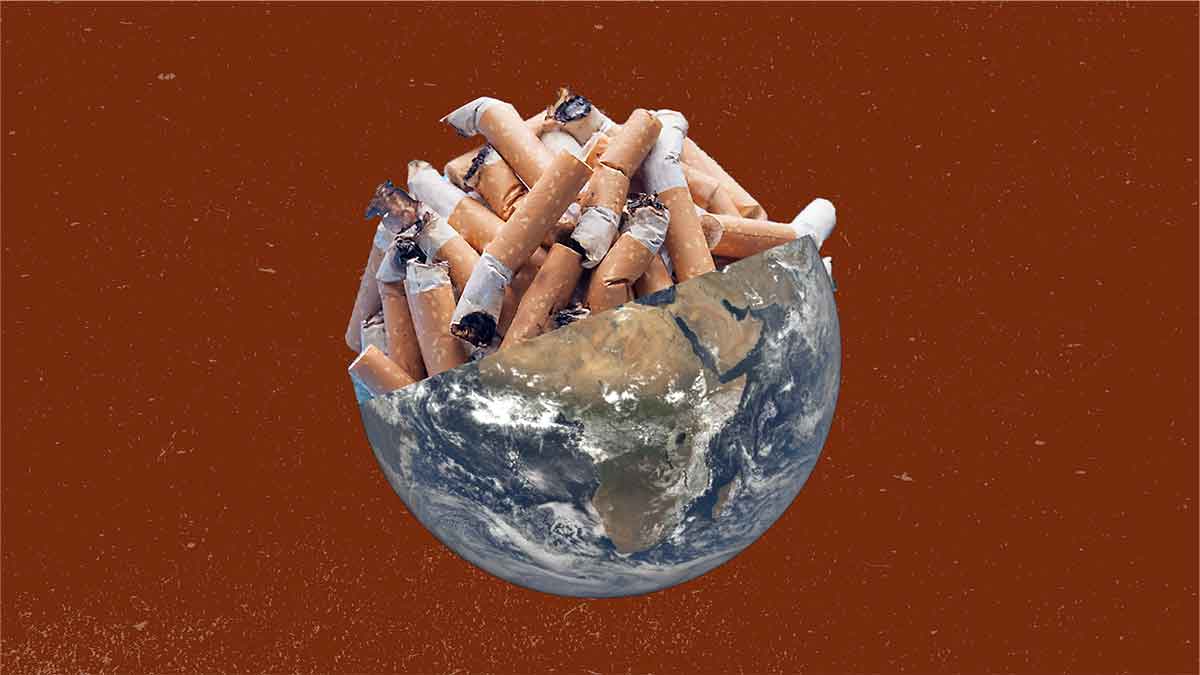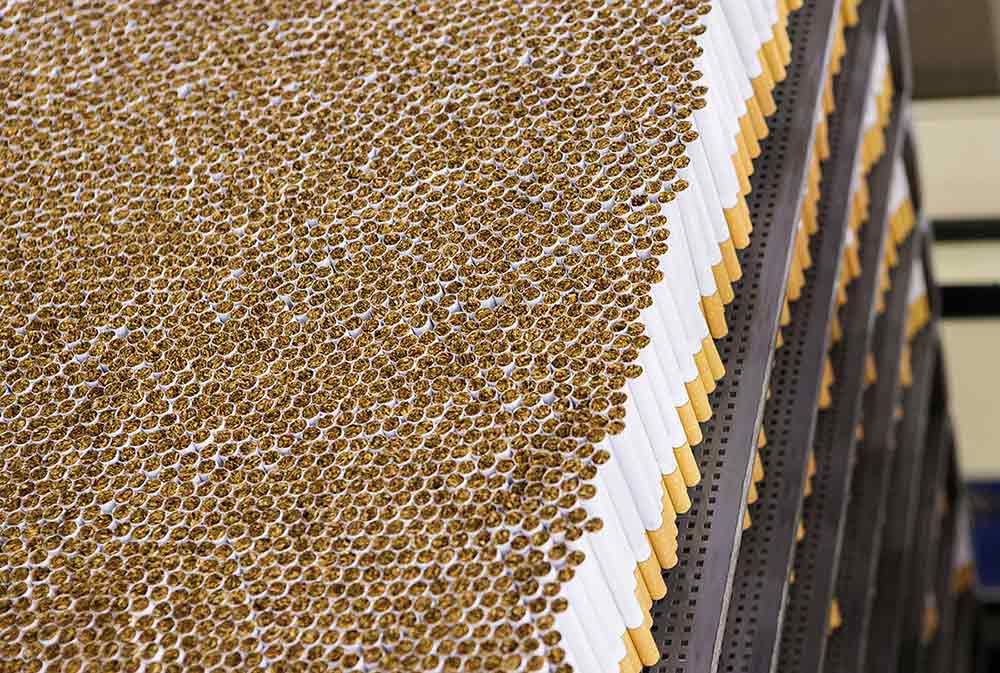- Resources
- News
-
-
Get Email Updates
Sign up for STOP's emails and never miss an update on our latest work and the tobacco industry's activity.
-
Get Funding
Ready to tackle industry interference? You could be eligible for a grant.
-
Share a Tip
Do you have information on tobacco industry misconduct in your country? Let us know.
-
Get Email Updates
Environment
May 26, 2022

Statement from STOP, a Global Tobacco Industry Watchdog
(New York, May 26, 2022) — STOP, a tobacco industry watchdog, today criticized the tobacco industry’s toxic impact on the planet and its public relations efforts to distract from that damage. In a new report produced in collaboration with World Health Organization, Talking Trash: Behind the Tobacco Industry’s “Green” Public Relations, STOP warns that the industry may cause even more environmental degradation as it pushes hard to hook people on electronic products.
Andrew Rowell, Senior Researcher with the Tobacco Control Research Group at the University of Bath, a Partner in STOP and a lead author of “Talking Trash” commented: “Tobacco companies are trying to claim they’re becoming sustainable, promoting environmental reports and accreditations. It’s smoke and mirrors. They’re never held to account for the environmental damage caused by their products and the global supply chains fueling their profits. In fact, the industry’s ecological impact is roughly equivalent to one of the large oil companies. We need to talk about big tobacco the same way we talk about big oil as a cause of climate change.”
A Toxic Product Lifecycle
Research reveals that cigarette butts are the world’s most common type of single use plastic pollution and they leak toxic chemicals for up to a decade. They also harm wildlife: in one survey, partially digested cigarette butts were found in 70 percent of sea birds and 30 percent of sea turtles.
Globally, 600 million trees are cut down every year to help produce cigarettes, contributing to climate change alongside the 84 million tonnes of CO2 the industry produces each year – more than some small countries. In a webinar to discuss “Talking Trash,” one expert revealed that Tanzania’s CO2 emissions could drop by 0.7% if the country implemented all of the commitments in the World Health Organization’s Framework Convention on Tobacco Control (WHO FCTC) – a global treaty that commits countries to take steps to reduce tobacco use and control its supply chain.
While tobacco companies claim that e-cigarettes and heated tobacco products will help deliver a more sustainable future, they are creating a new wave of environmental degradation and pollution, from mining for metals and the minerals used in batteries, to electronic and plastic waste.
Global Efforts to Hide the Damage
The use of “green” public relations is a global tactic tobacco companies use to distract from their environmental harm. Examples in “Talking Trash” gathered from around the world include:
- Partnering with the Ministry and an Institute for the Environment on a forest preservation project in Brazil and gaining the “Prime Minister’s National Award” for an afforestation project in Bangladesh, while tobacco growing has contributed to deforestation in both countries.
- Funding projects in Africa to increase access to drinking water. Tobacco production uses more water than most other crops and the chemicals used may affect drinking water sources.
- Funding an environmental education project in India, while another tobacco company ran a communications campaign claiming to be “water positive,” “carbon positive” and “solid waste recycling positive,” when tobacco damages the environment and health.
- Funding so-called corporate social responsibility projects in the United States including the initiatives Keep America Beautiful, the National Fish and Wildlife Foundation and the Center for Watershed Protection, despite the industry being a major source of pollution.
Reject Industry Ploys and Make Them Pay
The WHO has called climate change the single biggest health threat facing humanity. And tobacco companies, whose products are the biggest cause of preventable death, are major contributors to climate change—making their impact on health even worse.
STOP calls on policymakers and environmental groups to reject token, voluntary offers of funding or partnerships from tobacco companies and instead hold them accountable, making them pay to clean up the waste from their products and for wider damage to the environment. Governments can also fully implement the WHO FCTC, which has provisions to protect the environment (Article 18) and help governments protect themselves from being the targets of industry-sponsored PR campaigns (Articles 5.3 and 13).
Rowell concluded: “Do not believe the industry’s misleading ‘green’ public relations messages and token corporate social responsibility projects. Tobacco kills one in two long term users; it’s also killing the planet. These hugely wealthy companies, not ordinary taxpayers, should pay to clean up big tobacco’s environmental mess, as well as the significant health-related costs of tobacco. Reducing tobacco use and holding the industry accountable is a win-win for health and the planet.”
Please contact the STOP press office for more information or to speak to a STOP spokesperson.
About STOP (Stopping Tobacco Organizations and Products)
STOP is a global tobacco industry watchdog whose mission is to expose the tobacco industry strategies and tactics that undermine public health. STOP is funded by Bloomberg Philanthropies and comprised of a partnership among The Tobacco Control Research Group at the University of Bath, The Global Center for Good Governance in Tobacco Control (GGTC), the International Union Against Tuberculosis and Lung Disease (The Union) and Vital Strategies. For more information, visit exposetobacco.org.


